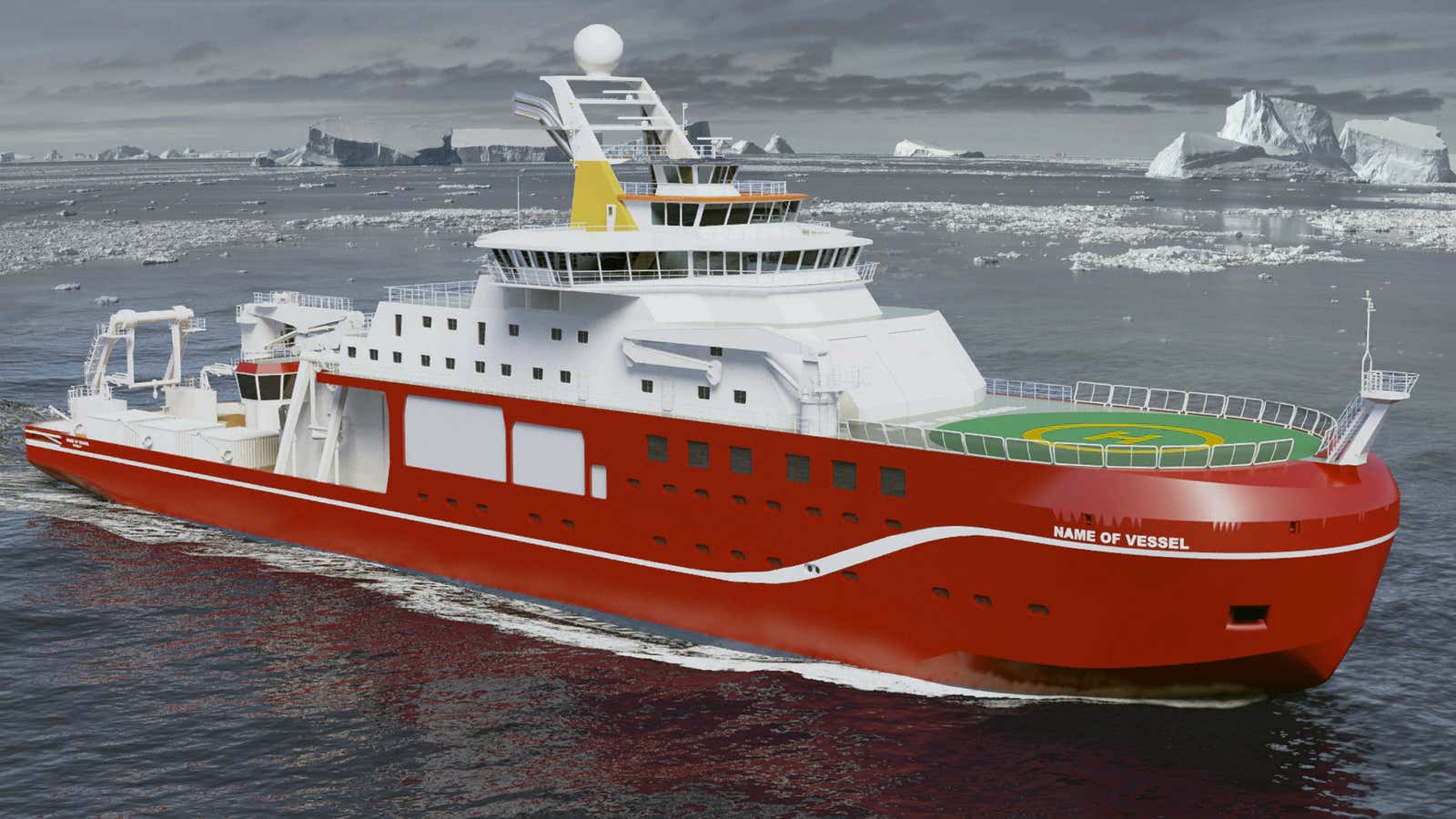The British government loves an inquiry, and often spares no expense reflecting and re-examining its past. A 2-million word report is soon to be published about the UK’s decision to go to war in Iraq—it cost more than £10 million ($15 million) and took seven years to complete.
So it should be no surprise that members of parliament (MPs) also held an earnest debate about the Boaty McBoatface incident.
The what? Let’s recap.
As an exercise in “public engagement,” the country’s Natural Environment Research Council (NERC) launched a competition to name its new £200 million polar research vessel. It received more than 7,000 entries, but the overwhelming favorite—with more than 120,000 votes—was RRS the Boaty McBoatface. (RRS stands for Royal Research Ship.) Against the people’s will and despite much criticism, the NERC chose instead to name the ship the RRS David Attenborough, after the famous TV presenter and naturalist. To appease the public, it named one of the ship’s robot submersibles Boaty McBoatface. The internet was not amused.
Having spent taxpayer money on the unexpectedly controversial naming competition, MPs wanted to know: Was the Boaty episode a public relations triumph or disaster? Yesterday (May 10), in the Wilson Room of Portcullis House, scientists and MPs held a lengthy, serious discussion about Boaty McBoatface, with only the occasional nautical pun.
“Do you think the minister is proud of NERC’s work or do you think the minister is going to make you walk the plank?” asked the chairman of parliament’s science and technology committee.
NERC’s defense, fittingly, was based on data and evidence. Through Twitter alone, the council claimed to have reached some 250 million people. It got calls from parents who said they hadn’t heard of the NERC before, but thanks to Boaty now they and their kids know about the work the group does.
“But is [Boaty McBoatface] not a victory for trivialization?” asked one MP.
“We’ve got evidence that [the public] did get real science, not just fluff,” replied NERC’s communications chief.
“There is a difference in awareness, engagement, and participation. How are you measuring it?” asked one MP.
NERC admitted it hadn’t expected the naming competition to go viral. Though representatives could measure awareness and engagement through fleeting social-media metrics, they only had anecdotal evidence on participation.
“So can Boaty McBoatface turn a new generation of curious minds towards science?” asked another MP. “Surely we have enough scientists to engage with schools in the UK.”
We will try, NERC said. So far, most of the council’s efforts had been focused on engaging policymakers and the media but not the public directly.
“Can we get this back on an even keel? You have named the ship something other than what people wanted,” one MP declared. “Do you think people would really engage with the NERC?” another asked.
“Being realistic, a lot of the engagement [NERC achieved] will disappear,” the panel admitted. “But it would be crazy not to try and build on this.”
Like any parliamentary discussion, it remains to be seen whether anything of consequence results from it. The record is mixed when it comes to follow-through on past inquiries. All we can hope is that neither the brave little Boaty McBoatface submersible nor the lessons NERC has learned from its christening are lost at sea anytime soon.




